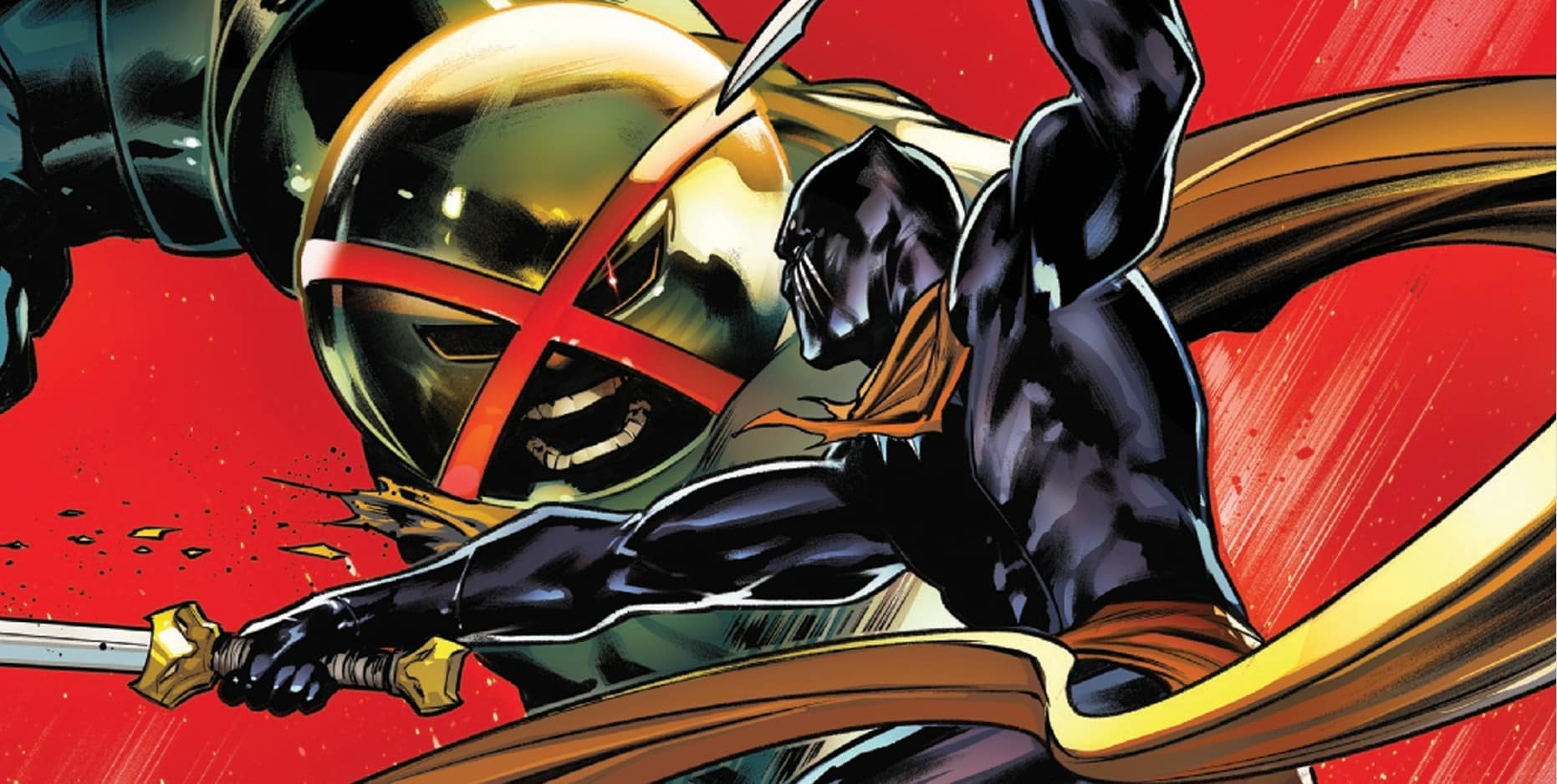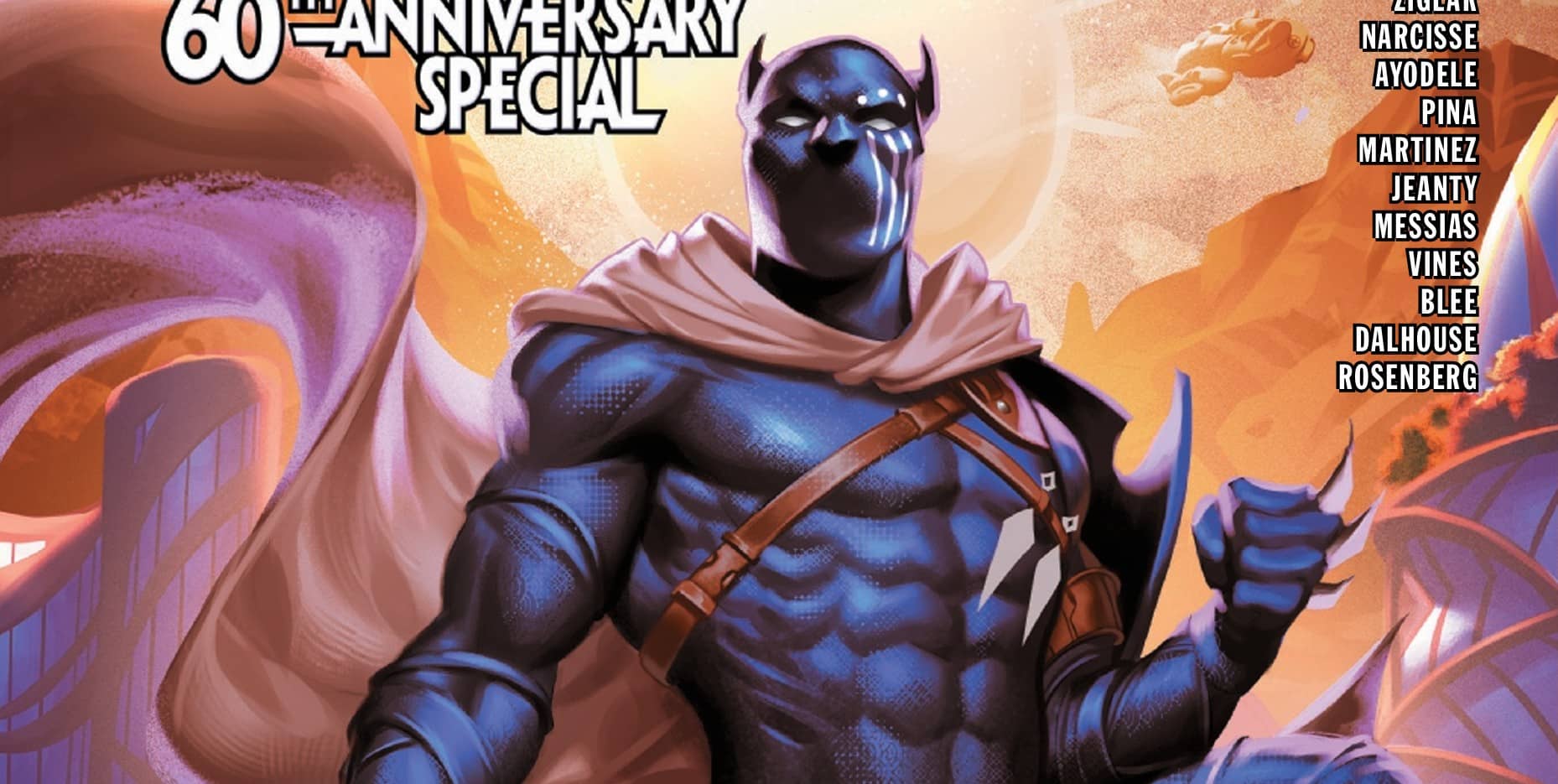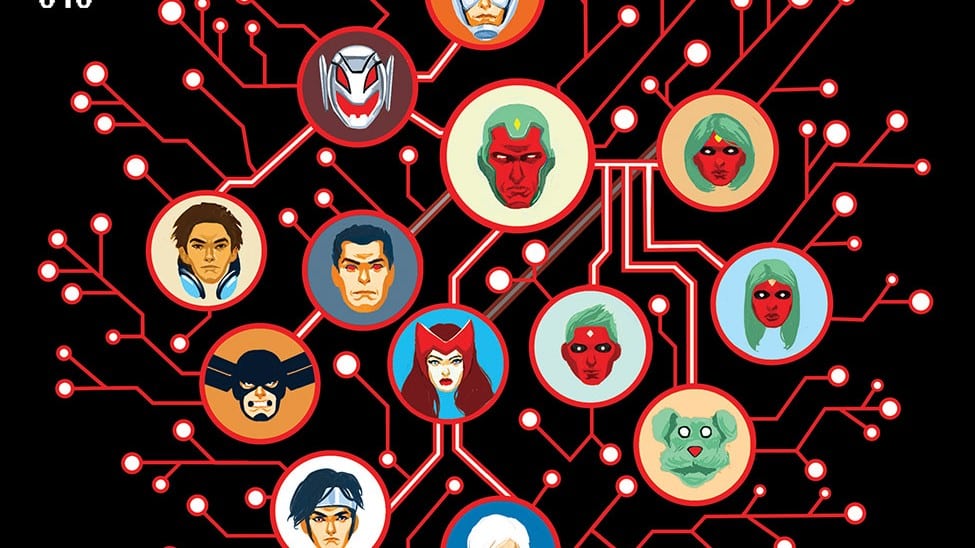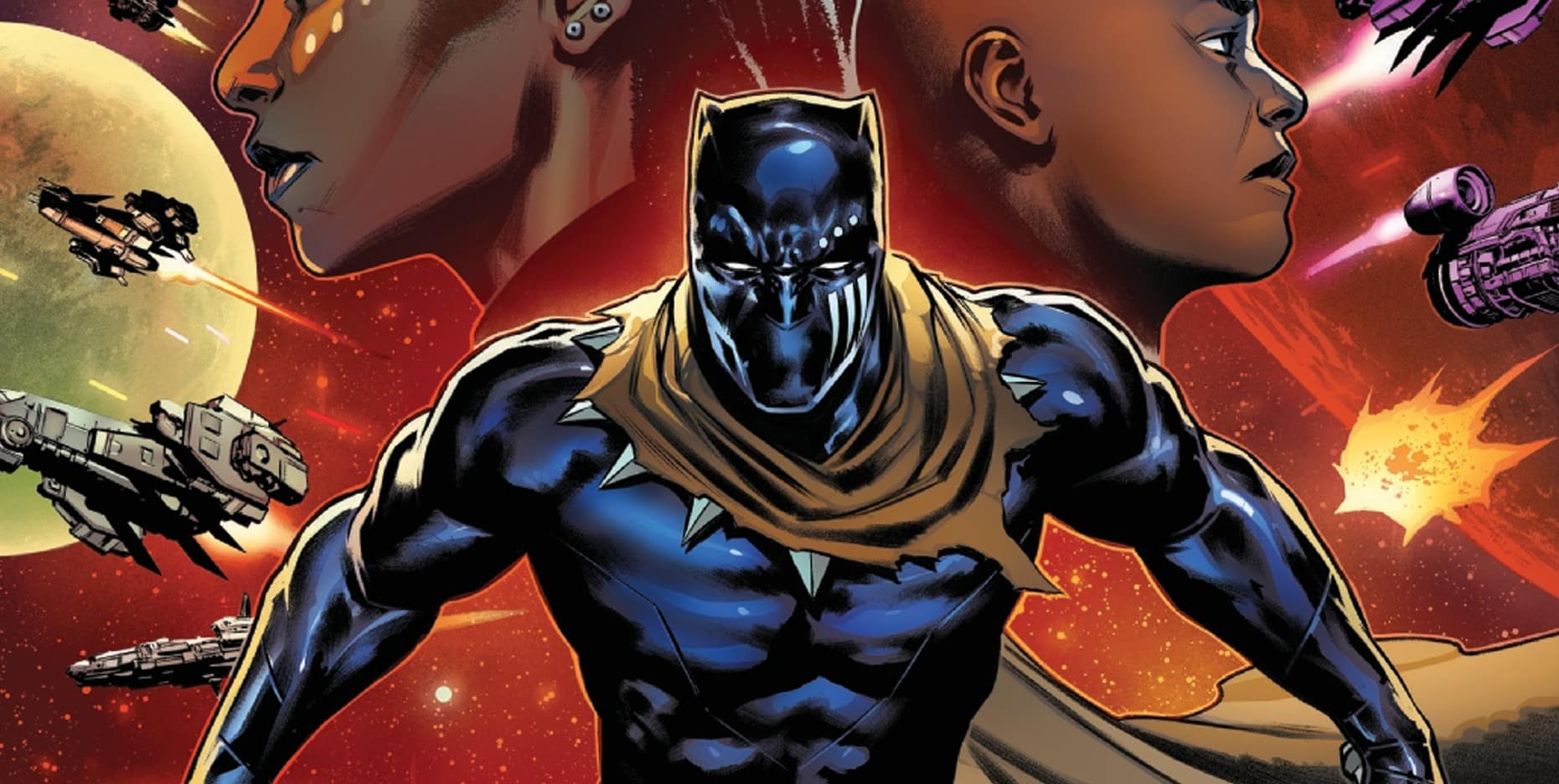Hello friends and readers! It’s a terrific twofer this week as Jude Jones explores Captain America #25, and Vishal Gullapalli digs into yet another issue of webslinging with Amazing Spider-Man #53!
Captain America #25
Written by: Ta-Nehisi Coates ( back up: Anthony Falcone)
Art by: Leonard Kirk (back up: Michael Cho)
Colors by: Matt Milla
Letters by: VC’s Joe Caramanga
One of the critiques of Ta-Nehisi Coates’ “Between the World and Me,” a coming of age story about how the loss of a friend’s life awakened his maturity, is the lack of space given to women in the story. The critique may seem odd: he is a man, his deceased friend was a man, and it would seem in-genuine to root the story in anything but their experiences as men. But women (particularly black women) clearly played an integral role in his development. Too often they are silenced and discarded in the stories of our survival and struggle.
I know Coates took this to heart; he’s said as much, and his output since then almost always places women at the forefront of the action, as both a conscience for right and as the consciousness of the people. I appreciate this thoughtfulness.
But thoughtfulness is not the same as execution.
In Captain America #25 (and, honestly, for much of the run), Coates relies too much on exposition and not enough development through conversation. Instead of learning about characters’ history, motivations and desires through dialogue and natural interactions, we learn through dictation of these characters’ thoughts. Instead of surmising, we are directed. Instead of discovering, we are told. And instead of these characters, specifically these women, being allowed to come into their own, we are forced to see them through a single, unassailable lens. They do not develop as individuals. They simply give context to move the plot forward.
It is not enough to simply give women a role in your story; women must be given an independent voice.
The issue itself is anticlimactic: we see Cap and Sharon try to save Peggy and the rest of the captured Daughters of Liberty. Bucky and Sam go HAM. Peggy maybe dies but probably doesn’t. It’s all fine enough.
But I don’t want fine enough. I want to *feel* what those characters are feeling, and exposition robs the reader of building an emotional bond, and robs the characters – the women – of an ability to come into their own. For true equality and representation, these characters deserved narratives. They deserved a voice. They deserve better.
That said, while I am critical of the tone and timbre, I appreciate the complex thoughts and themes that go into his writing. I may not love *how* we reach the destination, but I appreciate that the destination is worth going to.
I can’t say that about this issue’s secondary story, unfortunately.
Written by Canadian writer Anthony Falcone, Cap gives a paint by numbers eulogy for a dead friend that is so banal it’s almost offensive. This, from another angle, shows why exposition is violence: it can rob underrepresented characters of agency. It allows writers to feign inclusion without the responsibility of giving the underrepresented a voice.
Falcone has Cap narrate a pull yourself up from the bootstraps story of American exceptionalism, a kind of model-minority martyr missive. The man who should be subject of the story becomes the object; the story centers on how Cap *feels* about the struggle of the oppressed as opposed to allowing the oppressed speaking for themselves. It is a particularly frustrating kind of miss, for these stories usually come from those who seek to be allies.
I know they mean well. They probably think they’re writing stories that need to be told, but they can’t get out of their own way to let the characters tell the story.
This week’s lesson then: if you’re truly committed to the mission of uplifting the oppressed and underrepresented, then you have to be able to let those you characters speak for themselves.
You cannot speak over them.
Let them speak to you, and then let them speak to us. And if you can’t do it, if you have an issue with letting your characters articulate their lives on their own terms, then you would be avoiding the work completely.
Am I being a bit too harsh? Maybe! These were not bad by any means. But good enough is not good enough anymore. There are too many people who can do better, and as fans, we must demand better or else be served half-hearted servings in perpetuity.
Amazing Spider-Man #53
Written by: Nick Spencer
Pencils by: Mark Bagley
Inks by: John Dell
Colors by: Edgar Delgado
Letters by: VC’s Joe Caramagna
The world let out a collective groan of frustration at the last page of Nick Spencer’s Amazing Spider-Man #50 —An issue that revealed that the overarching villain of this run so far was none other than Peter Parker’s best friend, Harry Osborn. But this page wasn’t the end of this incredibly drawn out reveal. No, Nick Spencer needed to milk this for all it’s worth, waiting a full 3 issues (plus a few .LR issues co-written by Matt Rosenberg) to actually have Peter find out.
Now, I’m a huge fan of dramatic irony. The fun of most twists isn’t shocking the reader, as that’s something that never holds up on rereads. It’s about being able to see the pieces fall into place far before the reveal actually happens, and seeing how this twist affects the characters we care about. This issue focuses entirely on the latter – Peter finding out Kindred’s identity and the emotional impact this revelation has on him – and fails miserably.
Now, before we even get into the contents of the issue I need to bring up the pacing. Because this is easily one of the most superfluous issues of Amazing Spider-Man to date. It’s 22 pages leading up to a final page that we’d already gotten weeks ago. The whole issue is a hallucinatory flashback sequence broken up by segments of Kindred in the present, and does absolutely nothing to further the story or do anything that couldn’t have been done in 4 pages. Had Kindred’s identity not been revealed up to this point it might have felt a little less self-indulgent, but ultimately nothing of substance actually happens this issue.
What does happen, though, is one of the most frustrating things this run has done, which is saying something given how frustrating this run is as a whole. Peter, having “died” last issue, is flashing back to a day in his life years ago. And as the story progresses, he realizes what day it is – it’s when Harry came back. Now, if you’re like a lot of current readers, you may be assuming that this was a reference to some old Bronze Age story like most of this run has been up until this point. I thought so, too. However, this is something far, far worse. The party referenced takes place at the end of Amazing Spider-Man #545, better known as the conclusion to the story arc One More Day. Specifically, this entire reveal seems to hinge on something Peter said to Harry at the party – “Speak of the Devil and he shall appear.”
This is not satisfying storytelling. This is not a good way to keep the audience invested in a plot twist that started off lackluster. Not only has Nick Spencer invoked the most reviled and damaging Spider-Man story ever written, he has used it to cause further damage to Spider-Man and his side cast. It feels like the entire choice for Harry as this demonic antagonist comes from Spencer taking Peter’s line literally, because Harry’s basically the Devil now. My feelings about this book have gone from excitement to frustration to apathy, and now have landed on derision. I feel like all I can do is laugh to myself that this is what one of the biggest Marvel titles has come to.







